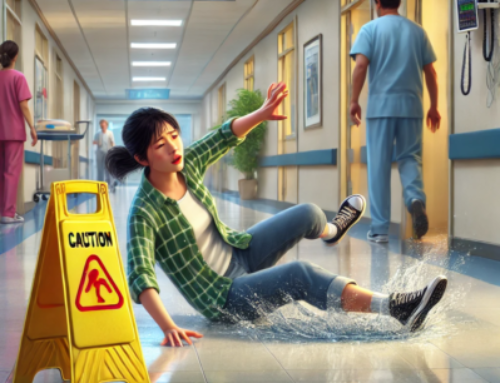May V. San Mateo County Et Al
Case Background
On January 14, 2016, Richard Earl May, Jr filed a civil rights violation lawsuit before the United States District Court, California Northern (San Francisco). The case was assigned to Magistrate Judge Laurel Beeler and referred to Magistrate Judge Donna M. Ryu (Settlement). [Case number: 3:16cv252]
Cause
On January 1, 2015, at around 10:00 p.m., Richard Earl May, Jr. was at the Mid-Peninsula Housing construction site at 1 Bloom Lane, Half Moon Bay, San Mateo County, California. He was there with a friend, “S,” to rescue S’s cat, Domino, trapped in a partially constructed building. At the time, May was 62 years old, and S was 73.
Before entering the site, May and S tried to call the security company listed on a sign around the perimeter. The number was incorrect and reached a medical supply company in Ohio. Concerned for the cat’s safety, they entered the construction site to find Domino, whose meows they could hear.
Once inside, S searched for a security guard but found none. After retrieving Domino, they walked toward the site’s fence to leave. Meanwhile, a security alarm had triggered, and SMCSO deputies, including Deputy Sanchez, and Defendants Michel and Laughlin, arrived and set up a perimeter around the site.
Deputy Sanchez, Michel, and Laughlin, with Laughlin’s police canine, Riggs, a German Shepherd, entered the site. The area was well-lit, allowing them to see May from a distance. As May and S walked toward the fence, they heard a commotion and saw the approaching deputies and Riggs. They stopped to explain their presence. S was holding the cat, while May, dressed in jeans and a plaid shirt, had nothing in his hands and was standing still.
Neither May nor S resisted or threatened anyone. Despite having no warrants or indication of serious crime, Laughlin unleashed Riggs without warning. Riggs bit May’s leg, causing severe pain. May fell, and Riggs continued to bite his leg for an excessive amount of time. Laughlin did not stop the attack until much later.
May was then handcuffed, searched, and taken to the hospital. Laughlin issued May a Notice to Appear for alleged misdemeanors, but the District Attorney later declined to pursue charges.
Injury
Plaintiff May’s doctor removed the stitches and prescribed antibiotics and painkillers. For some time after the incident, May’s leg was so swollen that he could not stand on it. Around January 25, 2015, May’s wounds reopened. However, his doctor could not re-suture them due to their nature. Instead, the doctor instructed May to change the wound dressing and use a topical prescription.
As a direct result of the actions and omissions of each Defendant, Plaintiff May suffered several injuries. These included significant physical harm requiring medical treatment, such as multiple bites, puncture wounds, soft tissue injuries, cuts, and lacerations.
Damages
As a direct result of each Defendant’s actions and omissions, Plaintiff May incurred the following damages, both past and future:
– Pain and suffering, including emotional distress.
– Medical expenses.
– Violation of constitutional rights.
– All damages and penalties recoverable under 42 U.S.C. §§ 1983 and 1988.
– Any additional damages allowed under California and United States statutes, codes, and common law.
Key Arguments and Proceedings
Legal Representation
- Plaintiff(s): Richard Earl May, Jr.
- Counsel for Plaintiff(s): Julia Sherwin | Maya Rodriguez Sorensen | Richard Morse Pearl | T. Kennedy Helm, IV | Michael J. Haddad
- Defendant(s): Chris Laughlin | San Mateo County |
- Counsel for Defendant(s): Justin William Mates | Brian Eric Kulich
Claims
Count One – 42 U.S.C. § 1983 – Defendants Laughlin, Michel, and Does 1-10
Defendants Laughlin, Michel, and Does 1-10 violated 42 U.S.C. § 1983 by depriving Plaintiff May of clearly established constitutional rights under the Fourth Amendment. These rights include protection from excessive and unreasonable force during arrest or detention, and freedom from unreasonable searches, seizures, unlawful detention, and arrest. Defendants acted with disregard for Plaintiff May’s rights and safety, resulting in injuries and damages as detailed in the complaint.
Count Two – 42 U.S.C. § 1983 – Supervisory and Municipal Liability – Defendants San Mateo County and Does 1-10
The actions of Defendants Laughlin, Michel, and Does 1-10, as well as other deputies, reflected San Mateo County Sheriff’s Office (SMCSO) policies. These policies were directed or ratified by policy-making officials and included permitting excessive force, inadequate training for canine use, and failing to handle complaints properly. Defendants County and Does 1-10 exhibited deliberate indifference by failing to hire, train, supervise, or discipline personnel adequately. The policies and failures of SMCSO were a proximate cause of Plaintiff May’s constitutional rights violations, resulting in serious injury.
Count Three – Violation of Civil Code § 52.1 – Defendants Laughlin, Michel, Does 1-10, and San Mateo County
Defendants Laughlin, Michel, and Does 1-10 violated Plaintiff May’s rights under California Civil Code § 52.1 and related laws by interfering with his rights to be free from unreasonable searches, seizures, and excessive force. Violations included threats, intimidation, unjustified use of a police dog, and delay in medical treatment.
Count Four – Negligence; Personal Injuries – All Defendants
All Defendants owed Plaintiff May a duty of care in law enforcement. This duty included refraining from excessive force, avoiding unnecessary seizures, and upholding constitutional rights. Defendants breached these duties, resulting in injuries and damages to Plaintiff May.
Count Five – Assault and Battery – Defendants Laughlin, Michel, Does 1-10, and San Mateo County
The actions of Defendants Laughlin, Michel, and Does 1-10 constituted assault and battery. Defendant County was alleged to be vicariously liable for the conduct of its deputies.
Count Six – False Arrest or Imprisonment – All Defendants
Defendants lacked a warrant or probable cause for Plaintiff May’s arrest. They unlawfully restrained and confined him without reasonable suspicion or legal justification.
Defense
The Defendants denied all allegations and claimed comparative negligence. They asserted that they were immune from claims of false arrest or false imprisonment under California Penal Code section 847(b). According to this defense, the arrest was lawful, or the Defendants had reasonable cause to believe it was lawful at the time.
Jury Verdict
The California jury determined that Chris Laughlin used excessive force against Plaintiff May, violating the Fourth Amendment to the U.S. Constitution and California law, including the Bane Act. The jury found both Laughlin and May negligent, assigning 70% of the responsibility to Laughlin and 30% to May.
The jury awarded May $1,000,000 in compensatory damages and $100,000 in punitive damages due to Laughlin’s oppressive and malicious conduct.
Court Documents:
Available upon request







Leave A Comment